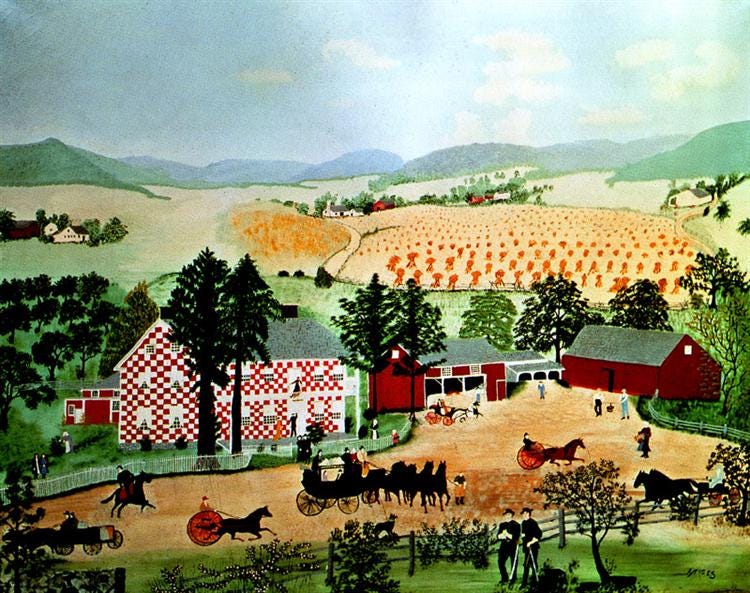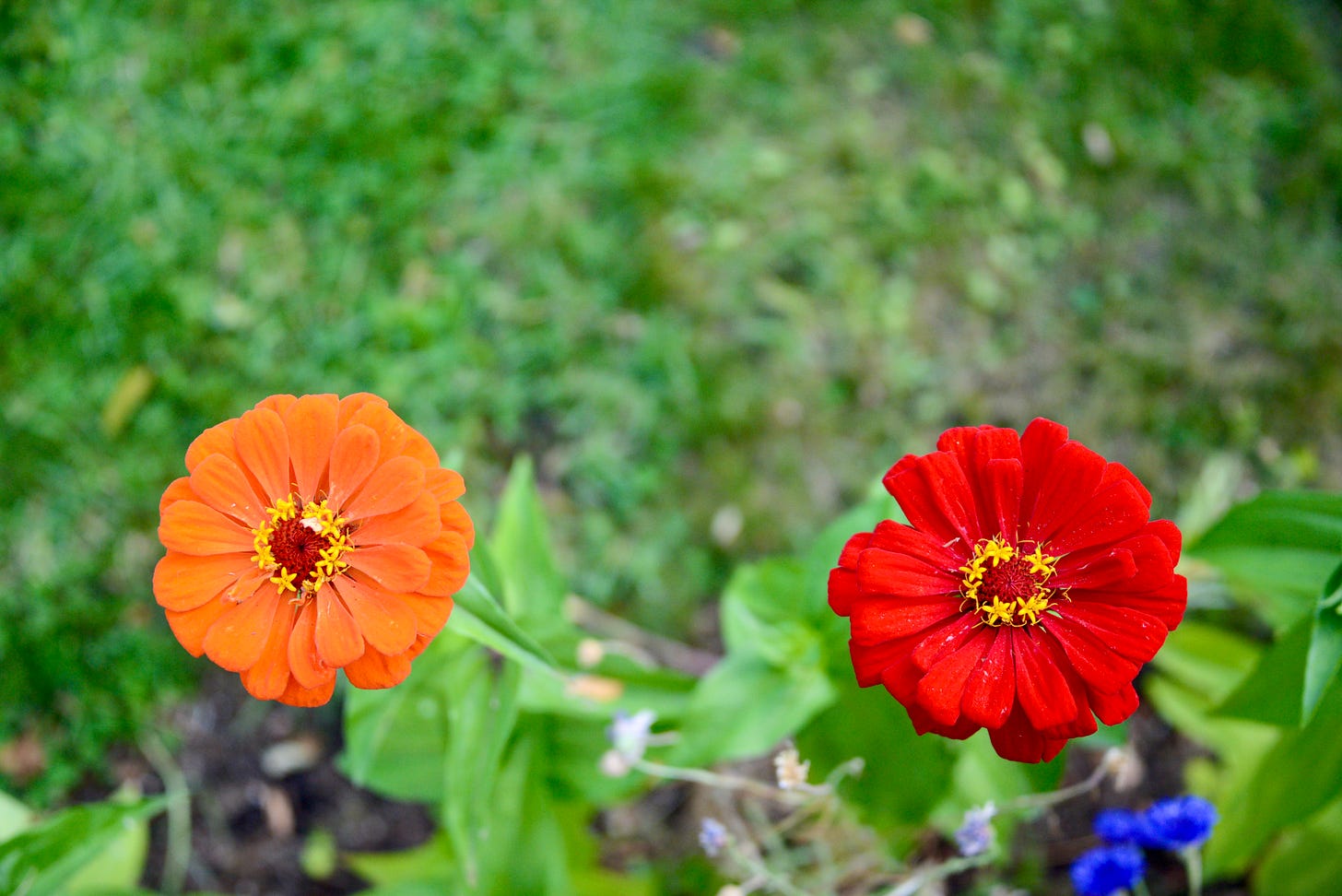Three short stories to consider if you ever wrestle with the question, “Is it too late?”
The first story is about a woman named Anna Moses.
A decade after her husband's death, Moses realized she had to give up embroidery as a pastime. At age 76, her arthritis was too painful for fine needlework.
When her sister suggested she try painting, Moses resisted. But one day, she saw some leftover paint from a house repair project and decided to play with it. She realized painting was indeed fun. It was satisfying and easy on her aging hands.
Moses started painting every week, drawing inspiration from her decades living on a farm. "I paint from the top down. From the sky, then the mountains, then the hills, then the houses, then the cattle, and then the people," she said. "I painted for pleasure, to keep busy and to pass the time away, but I thought no more of it than of doing fancy work."
Moses produced 1,500 paintings over the next two decades until she died at age 101. Today, she is known as Grandma Moses. Her work can be found in museums across the United States, including the Smithsonian American Art Museum in Washington, D.C., and the Museum of Modern Art in New York.

The second story is about a Hungarian woman named Edith Eger.
During the German occupation of Hungary, the Nazis sent Eger to Auschwitz and killed her mother in the gas chamber, but Eger eventually made it out and emigrated to America.
After working as a high school teacher in the U.S. for a few years, Eger decided to pursue a master's degree in psychology in her forties. However, her advisor strongly recommended that she get a doctorate instead. She wrote about the exchange in her book The Gift:
I laughed. "By the time I get a doctorate, I'll be fifty," I said.
"You'll be fifty anyway."
Those are the smartest four words anyone ever said to me.
Honey, you are going to be fifty anyway — or thirty or sixty or ninety. So you might as well take a risk. Do something you've never done before. Change is synonymous with growth. To grow, you've got to evolve instead of revolve.
After Eger received her Ph.D. in clinical psychology in 1978 at 50 years old, she started her therapy practice and helped people who went through extreme trauma. She remains active today in her mid-nineties.
The third story is about Florence Nightingale.
Today, Nightingale is considered the founder of modern nursing. In the mid-1800s, she drastically reduced hospital death rates by implementing strict hygiene protocols, such as regular hand-washing and proper sanitation of hospital wards.
But before the leap into medicine, Nightingale was extremely torn by the idea of leaving her comfortable home for service. For nearly 16 years, Nightingale struggled to respond to what she later referred to as "the call." Her wealthy English family expected her to follow the social norms of Victorian society: to socialize, marry, and manage households. Healthcare work, on the other hand, was risky and frowned upon. Becoming a nurse was unthinkable for someone with her social status.
While wrestling with her call, Nightingale asked a physician named Gridley Howe for advice:
Do you think it would be unsuitable and unbecoming for a young Englishwoman to devote herself to works of charity in hospitals?
Dr. Howe responded:
It would be unusual, and in England whatever is unusual is thought to be unsuitable.
But I say to you, "Go forward," if you have a vocation for that way of life, act up to your inspiration, and you will find there is never anything unbecoming or unladylike in doing your duty for the good of others.
Choose, go on with it, wherever it may lead you.
Although each story's circumstances were unique, there was a common thread among the characters: they all imagined a world they had started earlier. They were at the same crossroads, wrestling with whether it was too late to begin a new chapter.
“Never lose an opportunity of urging a practical beginning, however small,” Nightingale once wrote, “For it is wonderful how often in such matters the mustard-seed germinates and roots itself.”
The new idea within you is that mustard seed. Whether that seed will germinate depends on the direction you choose from here.
Thank you for reading. If you like this post, you may also enjoy my past weekly curated notes and other posts.



Thanks for this, I am a recent retiree, and at 65, giving myself more time to reflect and write!
"You'll be fifty anyway." Damn, so elegant yet so insightful!